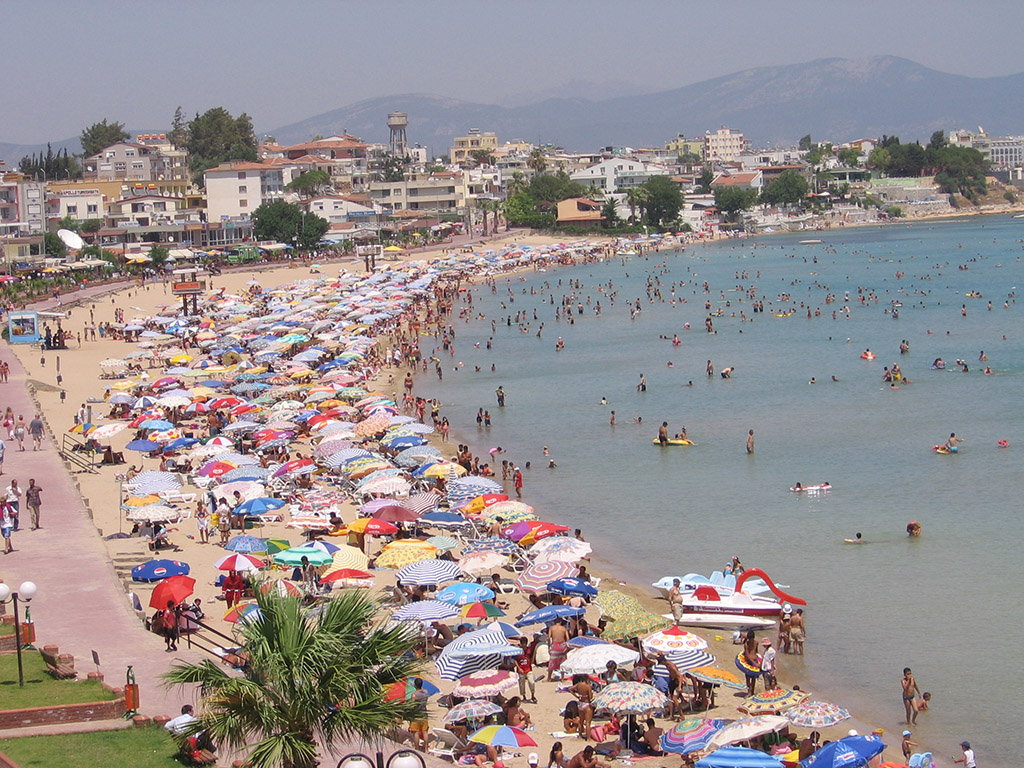As an expat, one of the major concerns about getting older in a foreign country is the need for comprehensive and efficient healthcare, writes A.J. Griffiths-Jones. Therefore, recent changes to the general practitioner services for foreign residents, especially in smaller communities like Akbuk, is a real cause for concern.
 There was no forewarning, just a Voices newspaper article mentioning that a centralised clinic for expats was underway in other provinces. Then suddenly, overnight, all records were removed from our local surgery and information revealed that foreigners must now attend an appointed healthcare centre in Didim.
There was no forewarning, just a Voices newspaper article mentioning that a centralised clinic for expats was underway in other provinces. Then suddenly, overnight, all records were removed from our local surgery and information revealed that foreigners must now attend an appointed healthcare centre in Didim.
I can, personally, see the logic behind this change. One clinic with an English-speaking doctor will, hopefully, relieve the pressure on already busy medical centres. However, the problems connected to these changes are already beginning to cause frustration, especially amongst the elderly.
For pensioners and residents who don’t drive, a one-hour dolmus ride into town can be both painful and stressful for certain illnesses and using taxi services can be quite costly for a round-trip.
There are also many who are having ongoing hospital treatment, for cancer and other serious conditions, and require bi-weekly or monthly blood tests. In these cases, attending our local medical centre took five minutes with the results uploaded or texted. My sources tell me that this service is not yet available at the specified clinic in Didim, but there is little information about how or where to resolve this.
Perhaps the government here perceived the new concept to be somewhat efficient, with a segregation of nationalities improving the process of receiving and discussing medical treatment, but I can’t help feeling that they have put the cart before the horse so to speak.
A longer contemplation of the solution might have been more beneficial, and instead of rolling out this new system across the country, input by local GPs might have highlighted areas of concern. I am sure the newly appointed doctor who will be seeing expat patients is very well qualified and capable, but I really don’t think you can beat seeing a GP with whom you have built up a rapport over several years, knows individual medical conditions and can keep a watchful eye on any underlying symptoms.
Eventually, with the onset of winter, I imagine that waiting times to see a doctor at the Didim clinic will increase as people succumb to flu and other seasonal illnesses. There may also be delays in the appointments themselves if specialised translators are required to join the doctor for more detailed conversations.
This is bound to have a knock-on effect at the state hospital too, with more referrals and routine patient procedures, such as butterfly stitches and saline drips, that were previously handled locally, being sent over there to lighten the clinic load.
We have already seen many changes in Turkish legislation, some of them connected to document requirements when applying for residency and others regarding marriage, so perhaps now only time will tell whether this new medical organisation brainwave will, in fact, become a great success.
The British are known for their ‘stiff upper lip’ and along with other foreign nationals living in Turkiye there is absolutely nothing we can do about these changes except put up with them. Eventually over time the positives of this new system might outweigh the inconvenience that we are now feeling, but for many it will feel like a long road ahead.
I would urge anyone who does drive and needs to use the new medical centre, to reach out to other expats in their neighbourhood, perhaps to offer a lift or car-share amongst a few, to ease the trip for the elderly or infirm. If we pull together, no matter how often or how small the gesture, what we now think of as tribulations will become the norm.
Personally, I am going to miss visiting our Akbuk GP, a very efficient and caring doctor who treats every patient as an individual and takes the time to really listen. Upheavals and new legislation always take time to adjust to, and it could be that these are not the first changes to be implemented regarding expat healthcare in Turkiye.
Turkish healthcare, in general, is excellent and many of us intend to live out the rest of our lives in this beautiful country that we have adopted, but when it comes to the cost and availability of services provided perhaps it is wise to always have a Plan B, just in case.
